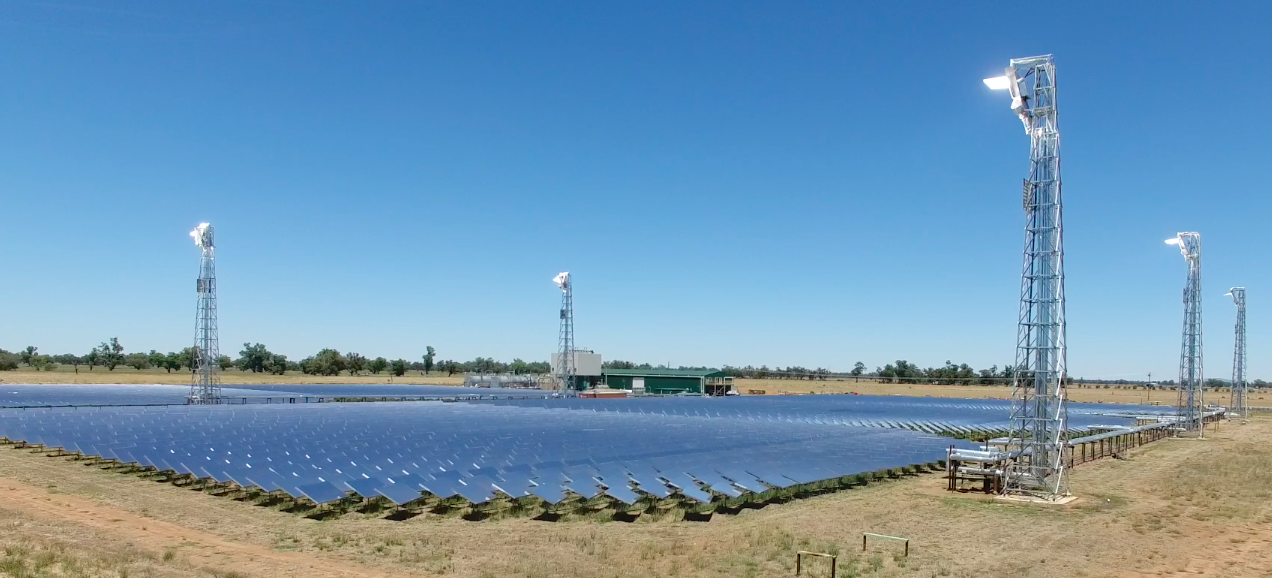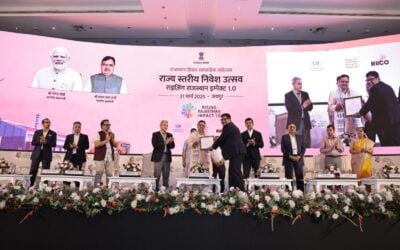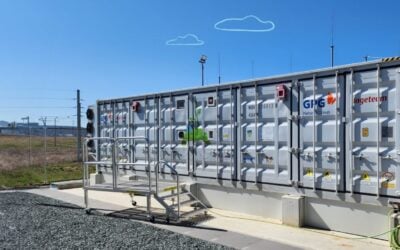
Australian startup Vast Solar said it has picked a site in Queensland where it could develop a AU$600 million (US$427 million) power plant combining different low emissions technologies to provide baseload power cost-effectively over a 30-year lifetime.
The company has a proprietary solar thermal generation and storage technology, using concentrated solar power (CSP) via mirrors to heat and melt sodium which is used as heat transfer fluid (HTF). The technology solution has been in development since 2009 according to the company and a 6MWth (1.1MWe) pilot plant has already been built in Jemalong, New South Wales, Australia. Vast Solar claims that the pilot plant, connected to the grid in NSW since 2018, has added over AU$5 million of value to the local economy. Heat generated by the mirrors on five CSP modules is outputted from the thermal storage and drives turbines to generate electricity.
Enjoy 12 months of exclusive analysis
- Regular insight and analysis of the industry’s biggest developments
- In-depth interviews with the industry’s leading figures
- Annual digital subscription to the PV Tech Power journal
- Discounts on Solar Media’s portfolio of events, in-person and virtual
Vast Solar also built a 60MW DC solar PV plant in Jemalong as part of its strategic plan to commercialise its own technology while learning about regulatory and technical aspects of energy project development and execution. That plant was sold to Genex Power Limited in late 2018.
The company said last week that it has now picked out Mount Isa, a city in a mineral-rich part of Queensland, for a new 50MW project that it said will combine solar PV, battery energy storage and gas engines together with the CSP parabolic troughs and molten sodium thermal storage.
Company CEO Craig Wood said that the plant would “ensure local mining and smelting operations can access reliable low-cost energy that also reduces their emissions,” being able to bring new generation to the local electricity market “at a lower cost than current power plants”.
“We’ve been delighted with the positive discussions we’ve had with political leaders, industry and the local community. If we get the green light to progress, we will be a long-term partner of Mount Isa and the surrounding area, creating jobs and tangible benefits that will last for the lifetime of the plant,” Wood said, adding that the company is committed to sourcing local suppliers where possible and confirmed that the expected total investment for the plant is AU$600 million.
Vast Solar claimed “hundreds” of jobs would be created during the plant’s development over the two years it would take to build the 50MW project, which would enable 24-hours of dispatchable clean energy and only rely on the gas generators for 15% of its output. The company said that the expected lowering of fuel costs and the long lifetime of the project meant it could “deliver significantly cheaper energy than alternate baseload generation options”.
Mount Isa’s Mayor, Danielle Slade said the hybrid plant is “exactly the type of project our community needs,” with local industries “crying out for affordable electricity”.
Along with hydrogen, carbon capture and a number of other technologies, Australia has picked out solar thermal as a technology the Federal Government could back as part of its Australian Technology Investment Roadmap. Vast Solar meanwhile said it is now looking for investors and backers, which it needs.
Energy-Storage.news reported in April this year on another proprietary solar thermal technology provider attempting commercialisation in Australia, RayGen, which again is looking to scale up from an existing megawatt-scale prototype. RayGen’s technology solution, dubbed ‘PV Ultra’, generates both electric power and heat and can store up to 17 hours’ duration of energy using a “thermal hydro” solar solution, a novel way to combine solar photovoltaics, CSP and thermal energy storage. Together with Europe-headquartered project developer-owner Photon Energy, RayGen is considering a 100MWp / 1000MWh project.






